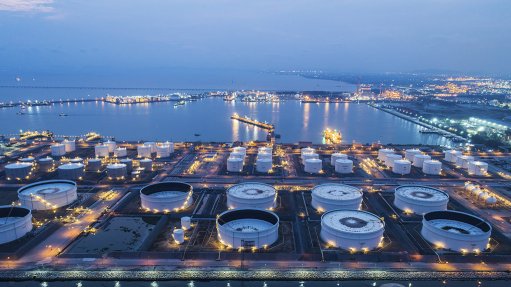
LEVEL OF CERTAINTY Oil and gas investments tend to be long term, and require a level of continuous certainty from the ecosystems in which they exist
Sub-Saharan Africa’s gas resources are vast, with ongoing developments highlighting the potential magnitude of the emerging gas sector and its ability to transform the region.
These developments include recent discoveries such as petroleum company Total South Africa’s Brulpadda prospect, in the Eastern Cape, and investments such as Mozambique’s $20-billion gas terminal.
Consulting multinational Deloitte tells Mining Weekly that gas tends to be more financially, socially and environmentally positive than many other energy sources. Similar to other resources, it has the potential to create employment, increase government revenue, broaden and deepen local supply chains, and cultivate local skills.
According to a Deloitte report published in November, reshaping and converting the energy sector into a source of domestic prosperity requires a “balance between private-sector investment and local economic participation”.
It also states that oil and gas investments tend to be long term, and require a level of continuous certainty from the ecosystems in which they exist.
The challenge arises when insignificant natural-resource value, is absorbed domestically and the majority of resources in Africa – be it oil or gas – flow out.
However, Deloitte holds that the uncertainties that often accompany mineral policies and regulations meant to rectify such disparities in resource-generated value, are often more harmful.
“Continuously changing and ambiguous policies and regulations increase administration costs and create uncertainty. The more companies are burdened by policy and regulations, the less likely they are to invest,” states the report.
Such policies and regulations, for example, include ensuring a balance between what can be exported and retaining certain percentages of the available product to safeguard the development of the local economy.
Meanwhile, the report adds that policymakers need to use the tools that are now available to navigate difficult trade-offs. “Technology advancements have increased the ability to make intelligent decisions, allowing for better decision-making.”
Data-driven and evidence-based analysis provide the opportunity to understand the actual needs and capacity of stakeholders, whether local communities or multinationals. This eventually leads to improved cost-benefit analyses of policies and regulations across industries.
Deloitte notes that data can, therefore, assist in creating a clear industry strategy, one that is embedded in national plans, takes stock of the current external and local environments, and provides clear and pragmatic objectives.
This means developing policy in consultation with key stakeholders in a way that is transparent and aligned, can be monitored to track progress and that allows for improvements to enhance efficiency.
However, the right policy and associated regulatory frameworks are not
enough to ensure a sustainable oil and gas sector, highlights Deloitte Africa oil and gas leader Jenny Erskine.
Unlike other countries, such as the US, the UK and Norway, Uganda, for instance, do not have the necessary infrastructure in place for the handling and transportation of these resources, she adds.
Erskine says economic diversity is also required to unlock the full potential of the vast gas resources and drive the necessary living standard improvements in Africa.
Meanwhile, oil and gas companies will start to diversify their portfolio and incorporate other industries, such as renewables, she adds.
Traditionally, companies have produced only oil and gas, but they have now started to incorporate renewables to ensure sustainability.
“You can see some companies actually starting to diversify. This ensures that companies provide a solution for their customers and not just a product,” concludes Erskine.